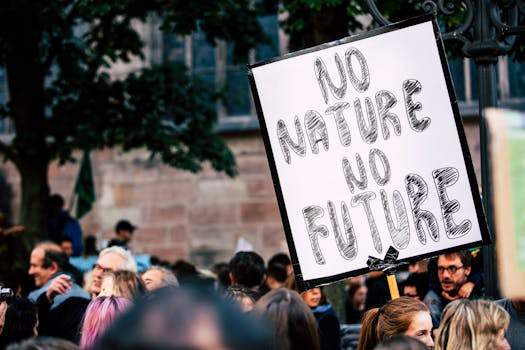
The impact of climate change on global ecosystems is profound and far-reaching. As temperatures continue to rise, ecosystems around the world are undergoing significant transformations. From polar regions to tropical forests, the effects of climate change are reshaping biodiversity and altering the delicate balance that sustains life on Earth.
Understanding Ecosystems

An ecosystem is a community of living organisms interacting with their physical environment. This includes plants, animals, microorganisms, and the climate in which they exist. Ecosystems provide vital services such as food production, clean water, and climate regulation. However, these systems are increasingly threatened by anthropogenic activities, particularly climate change.
Effects on Biodiversity

Climate change poses a significant threat to biodiversity. As temperatures rise, many species are forced to adapt, migrate, or face extinction. For instance, coral reefs, which support a vast array of marine life, are experiencing bleaching events due to increased ocean temperatures and acidity. This not only affects marine biodiversity but also the livelihoods of millions who depend on fishing and tourism.
Terrestrial ecosystems are not immune either. Species such as polar bears and various migratory birds are struggling to find suitable habitats as their traditional environments change. The loss of biodiversity can have cascading effects on ecosystem stability, leading to reduced resilience against further environmental changes.
Climate Change and Habitat Loss

As climate change progresses, habitats are being altered or destroyed. Deforestation, driven by agricultural expansion and urbanization, exacerbates the effects of climate change. Forests play a crucial role in carbon sequestration, and their destruction contributes to higher atmospheric CO2 levels, further intensifying climate change.
Wetlands, vital for flood protection and water quality, are also at risk. Rising sea levels and increased storm intensity threaten these ecosystems, leading to loss of habitat for numerous species. Protecting and restoring these habitats is essential for maintaining ecological balance and mitigating climate impacts.
Implications for Human Health

The effects of climate change on ecosystems also have direct implications for human health. Changes in biodiversity can lead to the emergence of new diseases as species interactions shift. For instance, warmer temperatures can expand the range of disease-carrying insects, increasing the risk of diseases such as malaria and dengue fever.
Moreover, food security is jeopardized as changing climates affect agricultural productivity. Crop yields are increasingly unpredictable, which can lead to food shortages and increased prices, disproportionately affecting vulnerable populations.
Strategies for Mitigation and Adaptation

Addressing the impact of climate change on ecosystems requires a multifaceted approach. Mitigation efforts, such as reducing greenhouse gas emissions and transitioning to renewable energy sources, are critical. Additionally, conservation strategies aimed at protecting biodiversity and restoring degraded ecosystems are essential.
Adaptive management practices, which involve monitoring ecosystems and adjusting strategies as conditions change, can enhance resilience. Engaging local communities in conservation efforts and promoting sustainable practices can also contribute to ecosystem health.
Conclusion

The impact of climate change on global ecosystems is a pressing concern that requires immediate action. By understanding these effects and implementing effective strategies, we can protect biodiversity and ensure the sustainability of ecosystems for future generations. The health of our planet and our own well-being depend on it.






